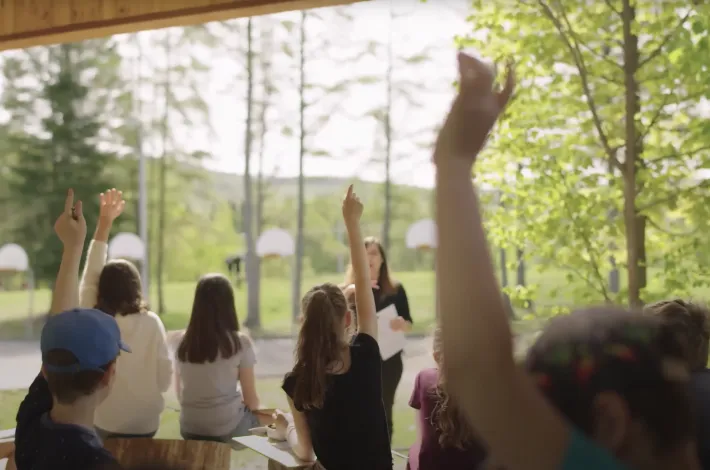
Community, Sustainable development
Carbon Scol’ÈRE: A program that helps young people make a tangible contribution to reducing greenhouse gases
On March 20, we participated in the Forum sur l’acceptabilité sociale in Lévis, organized by the Institut du Nouveau Monde. It was designed to be an inclusive activity that would advance reflection and knowledge of the notion of social acceptability.
Representatives from every part of society took part, with participants from provincial public institutions, municipalities, First Nations, the business world and environmental groups, as well as researchers and committed citizens. Throughout the forum, an atmosphere of dialogue and openness reigned.
Here are a few thoughts that emerged from this day of discussion.
It is important to note that there is no consensus on the dynamics surrounding social acceptability, for which there are numerous definitions. Frequently, a project’s social acceptability goes unnoticed because what is more evident, what stirs up emotions and generates a lot of print is when stakeholders are firmly opposed to the social and environmental impacts of a project or industry.
Many factors may lead to a project or industry being accepted or rejected but, in the end, what matters is aligning a proponent’s vision of development with that of the local community and society as a whole. Progress on a project can be hobbled if a variety of stakeholders within the broader society do not agree with the vision of development put forward by a sector or industry. The fact is, when it comes to social acceptability, there is clearly a concept of responsibility for the process being shared by proponents and stakeholders.
These days, proponents end up being responsible for not only demonstrating the merits of their project at the local and regional levels, but also for demonstrating the merits of their industry in the public sphere. This makes proponents feel isolated. Stakeholders, on the other hand, feel like they’re not being heard, and find that the consultation process is structured around the proponents’ needs, rather than their own. The challenge, therefore, is to find ways to work together better.
Through conferences and themed workshops, the Forum sur l’acceptabilité sociale helped to identify avenues for achieving a better dialogue around development projects.
Stakeholders are demanding more openness and empathy from proponents. It is in this context that the environmental and social issues being raised by communities could be incorporated ahead of a project’s development. One example, proposed by Stéphanie Prévost of the Corporation de protection de l’environnement de Sept-Îles: building an impact study in collaboration with citizens and local groups. It is a proponent’s job to grasp the ideas and concerns of people in the community, so as to enhance projects and show transparency.
In exchange, proponents want clear guidelines on the processes needed to achieve social acceptability. This comes from municipal, regional and provincial governments that inspire trust and can frame much of the debate surrounding projects. Naturally, the role of elected officials is to provide a clear vision of the issues and orientations of local development. Moreover, it is up to the federal and provincial governments to first consult with citizens on the sectors and industries to be developed, to avoid a situation in which proponents must defend not only their projects, but, more broadly, the industry they represent.
In conclusion, several avenues exist and all stakeholders have a role to play. It goes without saying that it is important to relearn how to listen to one another and create, in Québec, a true social project in which business, public institutions and the community are invested and actively take part.
Check the INM site in August 2015 to review the Forum’s proceedings, which will summarize the discussions and propose avenues for further clarifying the notion of social acceptability.